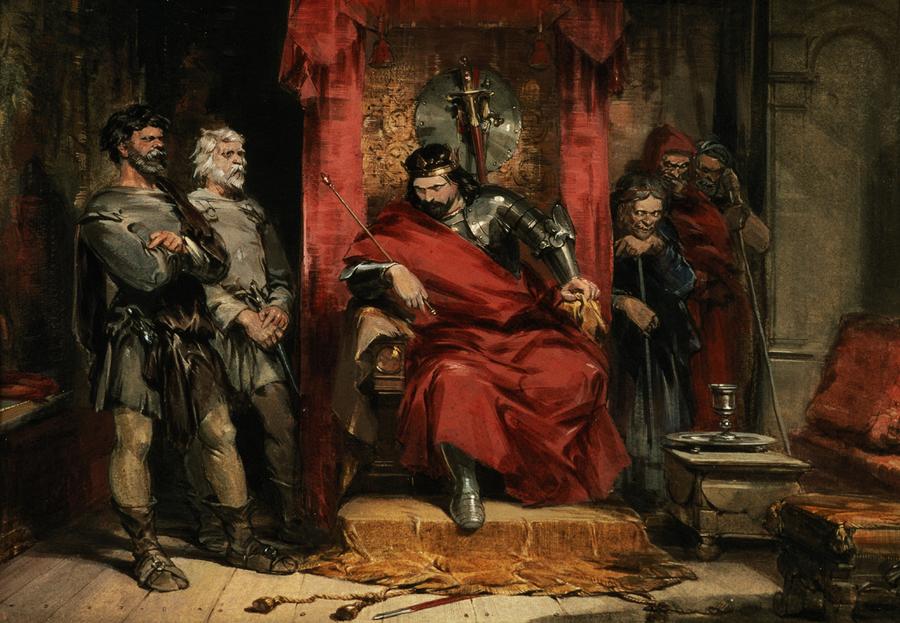
MacBeth's appearance differs from his true self. MacBeth portrays himself to be strong and wise, but inside he is truly weak. When he first faces the witch's predictions, he says; " Come what come may, time and the hour runs through the roughest day." Basically he says that any good fortune that may come to him in the future, will come on it's own. He wants to appear collected, strong, and noble, but in the end, he completely contradicts his statement by greedily killing men to get what he expects is his for the taking. This shows his extreme weakness because he believes what three weird strangers tell him. Not only is he weak with the three weird sisters, but he is also weak with his wife. MacBeth goes to his wife right after he planned to kill Duncan, and proclaims; "If we should fail?" in order to receive some reassurance from his beloved wife. He turned to his wife for strength and she replies; "We, Fail!" Even though his actions appear strong, his reasons are very weak. The largest portrayal of MacBeth's feebleness comes when Banquo's ghost appears before MacBeth's eyes. "Hence,
horrible shadow! Unreal mockery, hence!", MacBeth exclaims as he sees Banquo's ghost. Why would a King be afraid of shadows? A very weak man, MacBeth crumbles under pressure and guilt.




